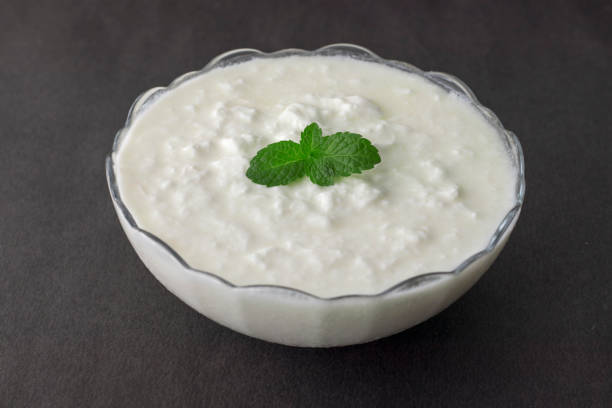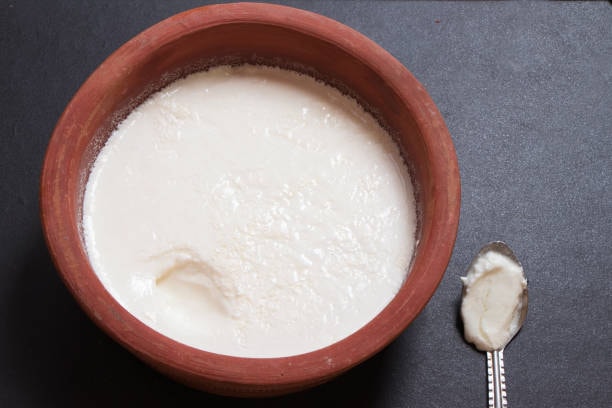
Curd Benefits, Nutrition & Calories – Is Dahi Good for You?
Time to read 8 min
Time to read 8 min
Table of contents
Curd or dahi is a fermented dairy product that is made by the fermentation of milk, offering numerous benefits. It contains lactobacilli, strains of bacteria. Curd is among the common dairy products that are consumed all over the world in different ways and various forms. Some consume curd adding sugar or honey and others salt and spices. Curd is packed with many nutrients offering various health benefits making it a great choice for your diet.
Now you must be thinking, is curd good for health? Curd benefits are excellent for overall health as it boosts immunity curd. Curd should be part of your daily diet as it is a remarkable source of probiotics and essential nutrients.
This article is all about dahi benefits, its numerous health benefits nutritional value, and how is it good for you. So let's dive and explore the nutritional benefits of this delicious dairy product.
Curd is consumed in every Indian household in different ways. Let's discover the nutritional content of curd as it contains, calories, macronutrients, micronutrients, vitamins, and protein that are all vital for supporting digestive health. Curd nutritional value per 100 g is mentioned in the table below.
Nutrient |
Value per 100 gram |
Total fat |
4.2 gram |
Saturated fat |
2.658 gram |
Polyunsaturated fat |
0.129 gram |
Monounsaturated fat |
1.194 gram |
Cholesterol |
14 mg |
Sodium |
371 gram |
Carbohydrates |
3.45 gram |
Protein |
11.75 gram |
Calcium |
72 mg |
Potassium |
99mg |
Iron |
0.13 mg |
Vitamin A |
42 mcg |
Sugar |
1.3 gram |
One cup of curd contains more calories than one cup of milk. Fat-free curd contains around 100 calories and the same amount of milk contains approximately 90 calories. A cup of homemade curd formed from cow milk contains around 142 calories. Plain unflavored curd made from whole milk contains approximately 61 calories. The curd made from full-fat milk typically contains higher calorie content than the curd made from fat-free milk.
Just like the calorie value if you compare the protein content of a cup of curd and the same amount of milk, curd contains around 11 grams of protein and milk around 9 grams.
Curd contains a good amount of vitamins including Vitamin A, Vitamin B complex, and Vitamin D, all of which contribute to bone health curd.
Curd or dahi presents many health benefits due to its probiotic properties and remarkable nutritional profile. Let's explore the common health benefits of eating curd daily.
Curd consumption is directly associated with better digestion and gut health due to probiotic properties, promoting a healthy gut microbiome. The probiotics and beneficial bacteria present in curd help manage various digestive issues. It significantly helps ease the symptoms of diarrhea, and constipation and also helps maintain healthy digestion.
Curd is an excellent source of protein and calcium that supports healthy teeth and bones. Aging makes our bone lose their calcium leading to weak and brittle bones. Regular consumption of curd not only defends against bone diseases associated with reduced bone density but also enhances skin health and can support weight loss efforts. Calcium and protein improve bone density.
The lactobacilli also known as good bacteria present in curd boosts immune function. Incorporating curd into your diet enhances immunity and contributes to better immune function. A strong immune system means strong protection against infections and illnesses. So what are you waiting for, start eating curd daily to boost the natural defense system of your body.
Cortisol is a major hormone that aids in weight gain. The calcium content of curd can inhibit cortisol which can help manage obesity in a healthy way. This way curd can be a significant addition to your weight loss diet. Curd makes you feel full for a longer time preventing cravings. Studies found that regular intake of curd can also help decrease body mass index (BMI).
A lot of people are concerned about high blood pressure, particularly during pregnancy it may cause complications (preeclampsia). Eating a cup of curd daily can help reduce blood pressure, especially due to its cooling and refreshing taste. The probiotics, potassium, and calcium found in curd regulate blood pressure maintaining healthy levels. Curd prevents cholesterol formation and reduces the risk of high blood pressure, heart attacks, and stroke.
Now coming to the most common question, will curd increase weight? Excessive intake of dahi or curd can lead to concerns about overeating curd, especially if you consume sweetened and high-fat curd. However low fat curd when consumed in moderation, can be used for weight management.
Adding curd to your weight loss diet can be helpful. It can assist in weight loss and aid complete well-being due to its high protein and low-fat content.
Both full-fat and low-fat curd present significant health benefits that are essential for a balanced diet, differing in terms of weight management and impact on heart health due to varied fat content. Full-fat curd offers the feeling of satiety and contributes to better weight management and low-fat curd is a great pick for low calorie consumption offering cardiovascular health benefits.
There are many myths about curd so it's time to burst the common myths and expose the truth behind them.
Due to its probiotic properties, curd improves digestion unless you are allergic to dairy products or lactose intolerant.
It's good to eat curd with your night meal as it helps the release of a relaxing amino acid known as tryptophan.
You can safely eat curd at night and in winter. However, if you have some respiratory allergies or other respiratory problems you can avoid it as it may increase mucus production.
It is recommended to consume curd in the morning time or the afternoon. Eating curd after lunch and dinner helps improve digestion. For certain people eating curd in the night can contribute to digestive issues and disrupt the sleep cycle.
Curd is not just healthy but a versatile food option that can be paired with fruits, spices, vegetables, seeds, nuts, certain grains, rice, and desserts as well.
Combining curd and sugar offers a simple sweet and delightful treat however adding sugar brings both advantages as well as drawbacks. This combination offers an energy boost, a cooling effect, and also a boost of calories and carbohydrates that is not ideal for people with diabetes and those who are seeking weight management.
Certain foods should not be mixed with curd such as milk, citrus fruits (lemon, oranges, grapefruit), oily foods, fish, melons, and bananas. Combining curd with these foods may contribute to digestive concerns and some other health issues.
Generally, 100-200 grams or one cup of curd per day is considered safe for most individuals and is a healthy food option. If you are seeking weight loss, you need to limit your calorie intake so you can consume 100 grams per day. For healthy adults, up to 100 grams per day is considered safe as it improves digestive health, weight management, and overall health. The benefits of eating curd daily are commendable however, it is recommended to consume curd depending on your particular needs, health conditions, and dietary goals.
Curd is an excellent food presenting a range of health benefits to everyone including pregnant females. It is an excellent source of calcium, probiotics, and protein. Eating one cup of curd every day simply offers remarkable benefits to overall well-being starting from better digestion and immunity to strong bones and healthy skin.
Add plain curd to your diet without any sweeteners and in moderation to get the most of its benefits, including improving skin texture. Too much curd may cause gas and other digestive problems so moderation is the key to getting its benefits. The best time to eat curd is in the morning and daytime. You can pair curd with rice, paranthas, curries, salad dressing, smoothings, and many other foods depending on your particular taste and choices.
Both homemade and store-bought curd contain the same amount of calories however homemade curd may have slightly more nutritional benefits. A cup of homemade curd made of cow milk contains around 142 calories. 100 grams of plain store-bought curd usually contains 60-65 calories.
Generally, consuming curd on an empty stomach is beneficial for the digestive system however make sure you consider specific sensitivities such as lactose intolerance and allergic reactions.
Greek yogurt and Indian dahi both differ in their preparation method, texture, and nutritional profile. Greek yogurt is prepared by straining whey from the normal yogurt making it thicker and higher in protein. Whereas Indian curd retains more natural fats, and has a creamier texture, along with probiotics and protein.
***Medical Disclaimer - The following information is for educational purposes only. No information provided on this website, including text, graphics, and images, is intended as a substitute for professional medical advice. Please consult with your doctor about specific medical advice about your condition(s).
